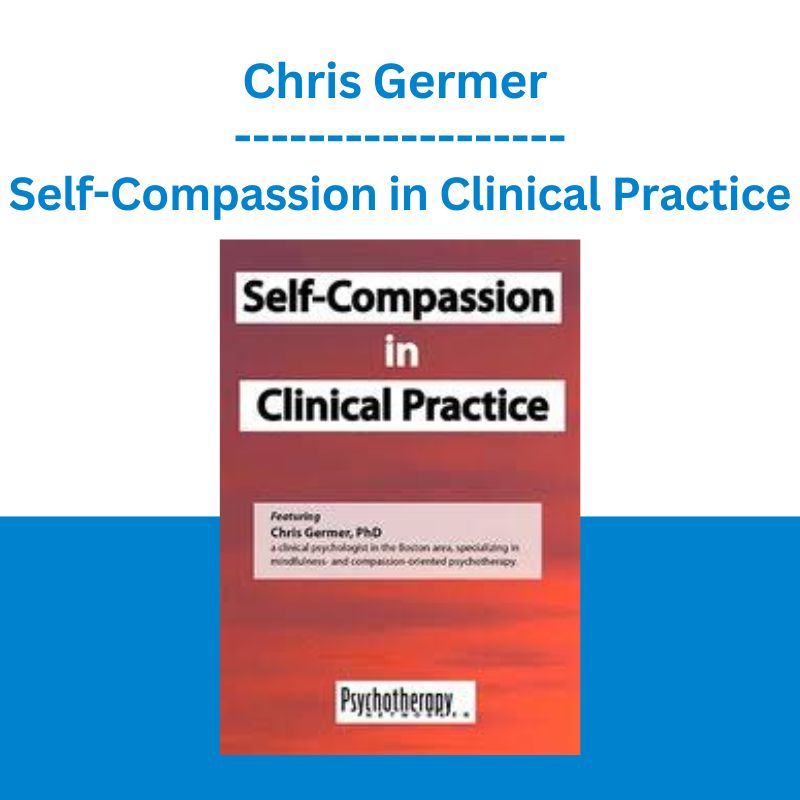*** Proof of Product ***
Exploring the Essential Features of “Chris Germer – Self-Compassion in Clinical Practice”
From depression and anxiety to addiction and trauma, a lack of self-compassion lies at the core of nearly every presenting problem. When therapy is effective, the therapist’s compassionate attitude seems to rub off on the client. Luckily, self-compassion exercises can also be taught and practiced between sessions, making the therapy relationship more portable. This recording will show how to apply Carl Roger’s maxim “When I accept myself just as I am, then I can change.”
Speaker
Christopher K. Germer, PhD is a clinical psychologist in the Boston area, specializing in mindfulness- and compassion-oriented psychotherapy. He is a Lecturer on Psychiatry, Part-Time, at Harvard Medical School and a founding faculty member of the Institute for Meditation and Psychotherapy. With Kristin Neff, PhD, Dr. Germer developed the empirically-supported, 8-week, Mindful Self-Compassion program. He conducts workshops and lectures internationally on mindfulness and self-compassion, is co-editor of Mindfulness and Psychotherapy and Wisdom and Compassion in Psychotherapy, and author of The Mindful Path to Self-Compassion.
Speaker Disclosures:
Financial: Christopher Germer is in private practice. He receives a speaking honorarium from PESI, Inc. He has no relevant financial relationships with ineligible organizations.
Non-financial: Christopher Germer is a member of the American Psychological Association; and the Association for Behavioral and Cognitive Therapies.
Objectives
- Explore how to use the therapy relationship to help your clients learn self-compassion
- Explore how to integrate self-compassion into your work to make it more enjoyable and deeply fulfilling
- Explore how to design self-compassion practices that clients can apply at home to alleviate different kinds of presenting problems such as anxiety, depression, trauma, and relationship conflict
- Explore how to apply self-compassion as an antidote to shame and a way to alleviate caregiver fatigue
- Discover the two parts of empathetic listening and how that will help your patient communicate their needs more effectively.
Outline
Self-compassion break
- A moment of suffering
- Suffering is a part of life
- May I be kind to myself?
Working with difficult emotions
- Labeling emotions
- Mindfulness of emotions in the body
- Soften-sooth allow
Shame
- An innocent emotion
- Sources of shame
- Shame and other emotions
- Negative core beliefs
- Self-compassion and shame
- Shame and silence
- Self-compassion and the whole self
Backdraft
- What is backdraft?
- How do we recognize it?
- What can we do about it?
-
- Soles of the feet
Finding loving kindness phrases
Loving kindness for ourselves
- Compassionate letter to myself
- Compassionate moment
Giving and receiving compassion
- Compassionate listening
- Compassion with equanimity
Living with a vow
Pathways and stages
Target Audience
- Psychologists
- Physicians
- Addiction Counselors
- Counselors
- Social Workers
- Marriage & Family Therapists
- Nurses
- Other Behavioral Health Professionals
Please see the full list of alternative group-buy courses available here: https://lunacourse.com/shop/










 Alex Becker - H-Com 2020
Alex Becker - H-Com 2020